Are we experiencing the end of days, or is it the dawn of a new era?
So, it’s pretty difficult these days to not be pessimistic about the future of humanity, right? A cursory glance at the news on tv or your social feeds likely leaves you filled with dread amidst the barrage of social challenges we face as a species. Perhaps we fall asleep in our beds tonight and wake up tomorrow discovering it was all just a bad dream – and a bright future awaits us. Or maybe, just maybe, we understand the ills (largely of our own device) of the present, mobilize our collective consciousness and take that first daunting step towards Perpetual Evolution.
Many religious texts prophesize the end of humanity and most doomsday purporters foretell of an imminent human extinction. A belief that we live in the age of darkness, ignorance and devastation. That our decrease in spiritual knowledge/awareness, the prevalence of evil human characteristics, increase in disease and disorders, shortage of food and resources, and a decline in social harmony are the roots of our implosion. It certainly paints a grim picture.
But surely a species as powerful as us cannot be helpless in this battle? In all of human history, we have never had the abundance of tools we have today to alter our trajectory. Technology, innovation, information and globalization are all at our fingertips. The question is: do we have the social consciousness and mental fortitude to want to change this path? The detrimental part of ‘dystopians’ viewpoint is that it perpetuates despair-escapism – a feeling of powerlessness to change something thought to be beyond repair – and inadvertently creates a roadmap to dystopia.
On the other end of the spectrum are ‘utopians’, who seek to create an idealized vision of a perfect society in all aspects. On the surface this appears to be a very positive outlook. It creates a clearly defined version of our ideal state, it creates stability and harmony through a shared goal, and inspires people to work towards a better world.
The questions that arise here are:
- Whose ideal state and shared goals are we creating?
- Does this ideal state create a greater good for all?
- Is this perfect society realistically attainable?
Typically, this ideal state is tailored for a group of people. Human beings are independent by nature and one size certainly does not fit all. We all have different visions of an ideal world and consequently different goals. The unrelenting quest for a perfect society often results in warped moral perspectives (in terms of how to attain this society) and a disciplinarian-like attitude towards creating this utopia which often stifles spontaneity, flexibility and individuality. It can create unrealistic perfectionist expectations from imperfect beings. Should it be thought that utopia is achieved, it can create resistance to change and adaptability.
Most dangerously though, utopians will exclude groups that do not fit their idealized vision. This rigid approach to future-planning will often marginalize groups and distort the very society it was born to create. If we look throughout history, there were many atrocious actions carried out to marginalized groups all in the name of creating a utopian society. It’s worth remembering that Nazi Germany was built on the foundation of creating an ‘Aryan Utopia’.
Rather than being on both ends of the spectrum then, it seems these frameworks for the future are merely two sides of the same coin. Is one man’s utopia not just another man’s dystopia?
Superficially, it seems that the answer lies somewhere between dystopia and utopia – between idle despair, fearmongering and dogmatic exclusionary unattainable visions. But in reality, the only sustainable solution is one of Perpetual Evolution. Rather than a theoretical philosophy, it is a practical call to action on shared visions for the highest good of all. It is an ever-changing, infinitely expanding, inclusive model for change, hope and the attainment of collaborative visions.
This is achieved through:
- Community (forsaking physical and intangible boundaries);
- Leveraging our individuality, diversity and uniqueness;
- Creating regenerative practices for all constructs of our society;
- Harnessing our symbiotic relationships;
- Embracing our inherent interpersonal connection; and
- Continuous reassessment and evolution of our values.
This is Protopia. A verb rather than a noun. An ever-improving journey rather than a perfect destination. It is iterative, never finite, continuously examined and adjusted. A space of creative collaboration, inclusion and continuous communication within our ever-evolving ecosystems.
A society where we all participate, contribute and benefit from our collective efforts that serve the highest good of all… This is the Emergent vision.



